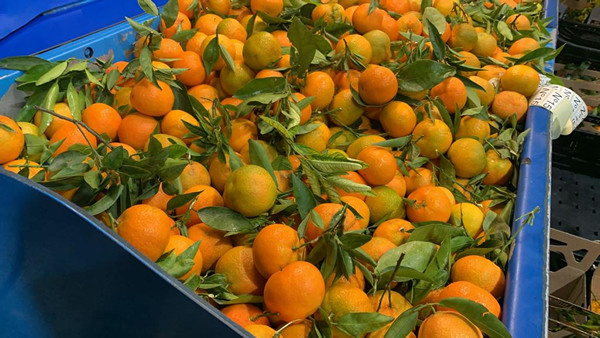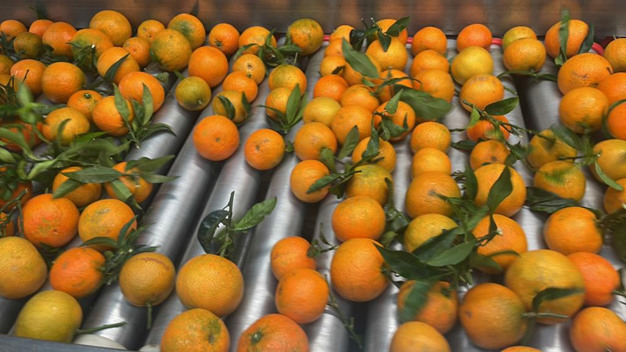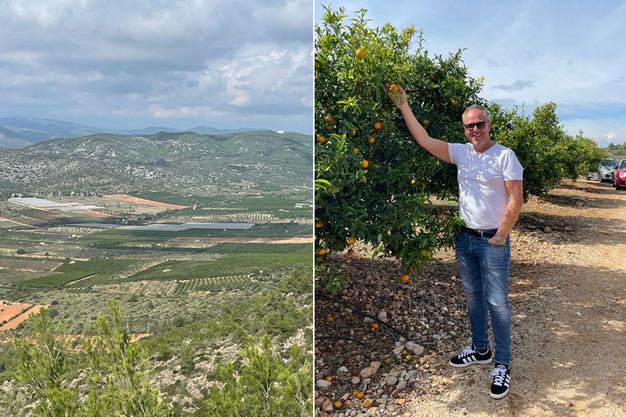It seems Spanish citrus growers and exporters are facing an extraordinary season. "The general picture is that this year's going to be a genuinely tough season for primarily oranges, but also mandarins," begins Lisan van Koppen of Jaguar, the fresh company. She visited several Spanish customers and suppliers the week before Fruit Attraction and last week.

"Spain had a highly unusual spring. First, it was freezing, and then not a drop of rain fell for a long time. Because of that drought, they're expecting plenty of small fruit in particular. That normally means more kilos, but the weather didn't help. The strange weather conditions damaged much of the fruit, so there's a limited supply of exportable fruit. The good news is that the Spanish fruit tastes fantastic, thanks to all the hours of sunshine."
The Spaniards are, thus, urgently seeking alternatives. "Many big producers and importers are considering their options, like Egypt and Morocco, though the latter country seems to be facing the same problems as Spain. The Spanish are truly shopping around for the early varieties. That makes for an exciting market, with Egyptian exporters smelling plenty of opportunities," says Lisan.

"I don't want to say people are panicking, but everyone is exploring their options. We'll have to wait and see if things turn out as bad as expected and if the shortages persist during the overseas season. It often seemed things couldn't get any crazier during the South African juicing orange season, but the situation kept repeating itself."
Different market ratio
"The shortages are changing Spain's market ratio, too. A trader who used to always buy fruit off the tree during harvesting told me he had to buy Lane Late oranges harvested in late February/early March. That's pretty risky because nobody knows what will happen in the next few months. But if he doesn't do it now, others will buy up that fruit," Lisan explains.

"Mandarin prices, too, are on the high side. The last overseas ones are on the market but in minimal quantities. We currently carry Marisol, Orogros, and Clemenules, among others, all with leaves. The later full-colored overseas mandarins are particularly pricey. The Spanish varieties overlap somewhat, but they should be ready early. That will probably result in a difficult December, usually always a good mandarin sales month. In contrast, the later varieties such as Nadorcott are expected to rebound."
Lemons seem to be escaping these issues at the moment. "There should be plenty in Turkey and Spain, and few overseas lemons are needed. It's, however, still early, and frost at the beginning of next year could reverse the situation for next summer," Van Koppen says.

"The water shortage has become problematic for many Spanish growers. I hear that several lettuce growers planted less because they can't guarantee they'll have enough water available and don't dare gamble on rain. Apart from the water shortage and weather conditions, there's far less enthusiasm for citrus cultivation, and there are quite a few aging, unused orchards."
Battle for Egyptian citrus has begun
Jaguar has built a strong position in Egyptian citrus. "We have several strong partners there. Also, our engineer coordinates everything monthly," Lisan points out. "We, thus, get increasingly better fruit, juiciness and flavor-wise. A battle has now begun between the various continents for Egyptian citrus, and regarding prices, Europe often loses out."

Lisan considers Jaguar's global presence the Dutch company's strength. "We can serve customers year-round from our various branches (Leopard, Caracal, Pantera, and Otorongo). Whether it's avocados from South America, grapefruit from South Africa, pomelos from China, or oranges from Egypt, we're a one-stop shop," she concludes.
 For more information:
For more information:
Lisan van Koppen
Jaguar, the fresh company
Tel: +31 (0) 180 750 566
Email: [email protected]
Website: www.jaguarthefreshcompany.com
